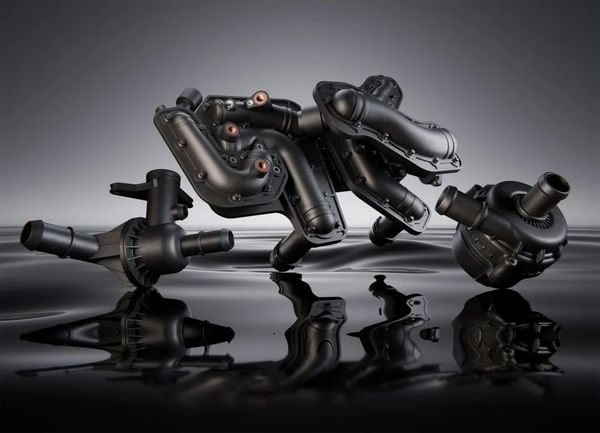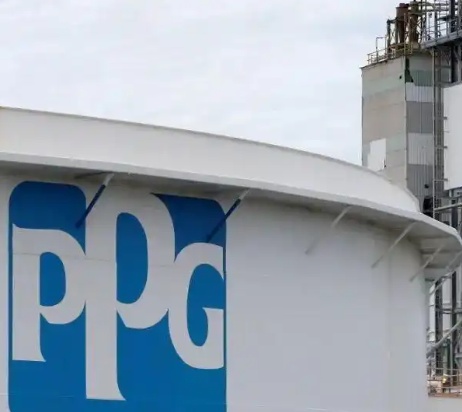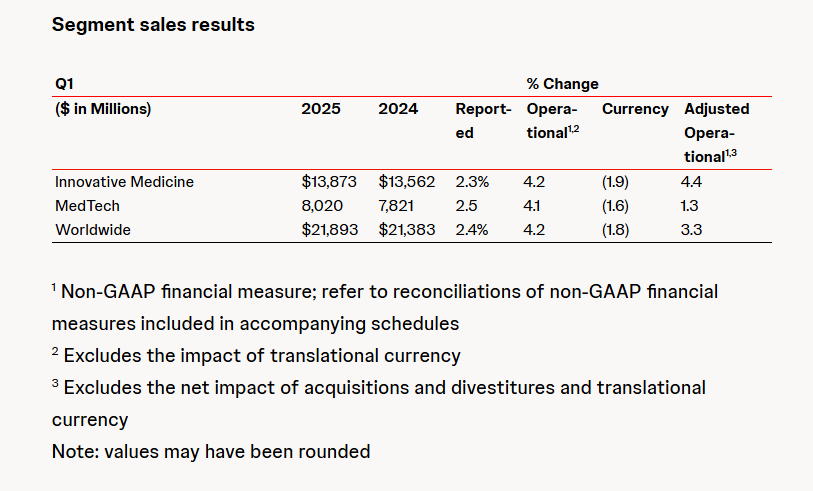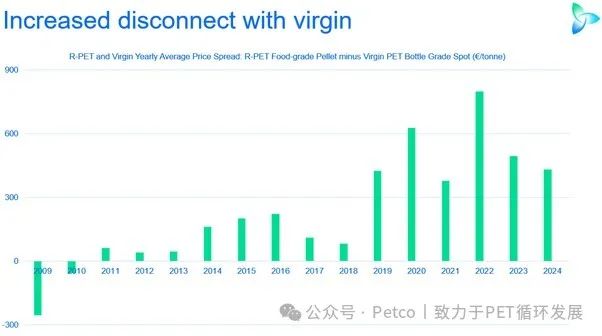BASF releases new high-temperature nylon!
For durable components requiring special thermal management, BASF has further expanded its Ultramid® Advanced T1000 series. This product line is developed based on polyamide 6T/6I resin, with newly added optimized products featuring high hydrolysis resistance (HR) and high purity (EQ, i.e., electronic quality).
The newly developed HR and EQ grades exhibit excellent high strength and stiffness at high temperatures, along with superior creep resistance and excellent tolerance to coolant fluids. Their overall performance significantly outperforms standard polyamide grades as well as many other PPA products on the market.

The brand new hydrolysis-resistant Ultramid® Advanced T1300HG7 HR product exhibits excellent chemical stability and dimensional stability even when in contact with various media such as ethylene glycol, thermal oil, and water at temperatures of 130°C and above.
This characteristic can significantly extend the service life of components used in automotive cooling systems, such as thermostat housings, oil inlets and outlets, and water pumps.
The pure Ultramid® Advanced T1300EG7 EQ contains almost no electroactive components, yet it still exhibits excellent thermal aging resistance when in contact with water, hydrogen, or high-purity cooling media such as Glysantin® FC G20. This characteristic makes this PPA particularly suitable for applications in electric vehicles and fuel cell components, such as end plates, medium distribution components, and humidifiers. Throughout the entire lifecycle of electric vehicles (with a minimum requirement of 25,000 hours), this PPA is able to maintain stable mechanical properties at various temperatures, helping to extend the service life of these components.
Marc Keller from BASF's PPA Global Marketing Department stated, "Since we launched Ultramid® Advanced T1000 in 2018, customers have trusted its outstanding performance: it maintains mechanical strength regardless of temperature or climatic conditions, and exhibits excellent moisture and chemical resistance. With the introduction of the new HR and EQ grades, we are raising the bar once again: we are well aware of the growing challenges in thermal management for PPA under demanding conditions, and we can help customers address these challenges while maintaining the performance and safety of their applications." In addition to the newly launched high-performance HR and EQ grades, components requiring laser welding can utilize the Ultramid® Advanced T1000 LT product series, which not only features hydrolysis resistance but also laser transparency.
About the Ultramid® Advanced product line
BASF's PPA product series is based on six polymers: Ultramid® Advanced N (PA9T), Ultramid® Advanced T1000 (PA6T/6I), Ultramid® Advanced T2000 (PA6T/66), Ultramid® T KR (PA6T/6), Ultramid® T6000 (PA66/6T), and Ultramid® T7000 (PA/PPA). This product series offers next-generation lightweight, high-performance plastic components for industries such as automotive, electronics and electrical equipment, mechanical engineering, and consumer goods. The series includes over 50 modified specifications for injection molding and extrusion, as well as flame-retardant and non-flame-retardant products. The products are available in various colors, from colorless to laser-marked black, with short glass fiber, long glass fiber, or mineral fiber reinforcement, and various heat stabilizers.
In the Ultramid® series, the Ultramid Advanced T1000 (PA6T/6I) product portfolio boasts the highest strength and stiffness, with stable mechanical properties at temperatures of 125°C (dry) and 80°C (conditioned). It exhibits exceptional moisture resistance and corrosion resistance, surpassing traditional polyamides and many other PPA materials available on the market. It is used in the automotive industry, particularly for components that must maintain strength and rigidity when exposed to harsh environments. Additionally, it is found in all other industry applications requiring moisture or chemical resistance, such as thermostat housings and water pumps, fuel circuits and selective catalytic reduction systems, automotive actuators and clutch components, coffee machines, furniture joints, and building applications like manifolds, heating systems, and water pumps. BASF offers the market around 10 different grades, ranging from standard glass fiber-reinforced grades with varying stiffness, strength, and toughness values, to special grades with improved hydrolysis resistance, and long fiber-reinforced compounds with high thermal stability.
About high-temperature nylon PPA
Polyphthalamide (PPA), also known as high-temperature nylon (HTPA), is a semi-aromatic polyamide made from the polycondensation of phthalic acid and hexamethylenediamine. The molecular chain of HTPA contains rigid benzene rings and long flexible chains of diamine, which endow the polymer with both flexibility and strength, as well as moderate mobility. As a result, it has a high crystallization rate and crystallinity.
PPA resin exhibits superior strength and stiffness compared to ordinary nylon resin at high temperatures, along with better chemical resistance. It also performs better than ordinary nylon in humid environments. With a continuous use temperature range from 120°C to 185°C, it can replace metal in high-temperature automotive components.
PPA resin is more robust and rigid than aliphatic polyamides such as nylon 66; it is less sensitive to moisture; it has better thermal properties; and it exhibits much better creep, fatigue, and chemical resistance. For example, PPA resin containing 45% glass fiber has a tensile strength of approximately 276 MPa, flexural modulus exceeding 13,786 MPa, and heat deflection temperature (HDT) of 549°F. Even mineral-filled grades of PPA can achieve a tensile strength of 117 MPa. The ductility of PPA resin is not as good as that of nylon 6,6; however, un-reinforced impact-modified grades of PPA resin have been developed, with notched Charpy impact strength as high as 20 ft-lb/in.
Due to the excellent physical, thermal, and electrical properties of PPA resin, especially its moderate cost, it has a wide range of applications. These properties, along with its excellent chemical resistance, make PPA a candidate for many uses in the automotive industry.
【Copyright and Disclaimer】The above information is collected and organized by PlastMatch. The copyright belongs to the original author. This article is reprinted for the purpose of providing more information, and it does not imply that PlastMatch endorses the views expressed in the article or guarantees its accuracy. If there are any errors in the source attribution or if your legitimate rights have been infringed, please contact us, and we will promptly correct or remove the content. If other media, websites, or individuals use the aforementioned content, they must clearly indicate the original source and origin of the work and assume legal responsibility on their own.
Most Popular
-

Overseas Highlights: PPG Establishes New Aerospace Coatings Plant in the US, Yizumi Turkey Company Officially Opens! Pepsi Adjusts Plastic Packaging Goals
-

Abbott and Johnson & Johnson: Global Medical Device Giants' Robust Performance and Strategies Amid Tariff Pressures
-

BYD releases 2024 ESG report: Paid taxes of 51 billion yuan, higher than its net profit for the year.
-

Behind pop mart's surging performance: The Plastics Industry Embraces a Revolution of High-End and Green Transformation
-

The price difference between recycled and virgin PET has led brands to be cautious in their procurement, even settling for the minimum requirements.



